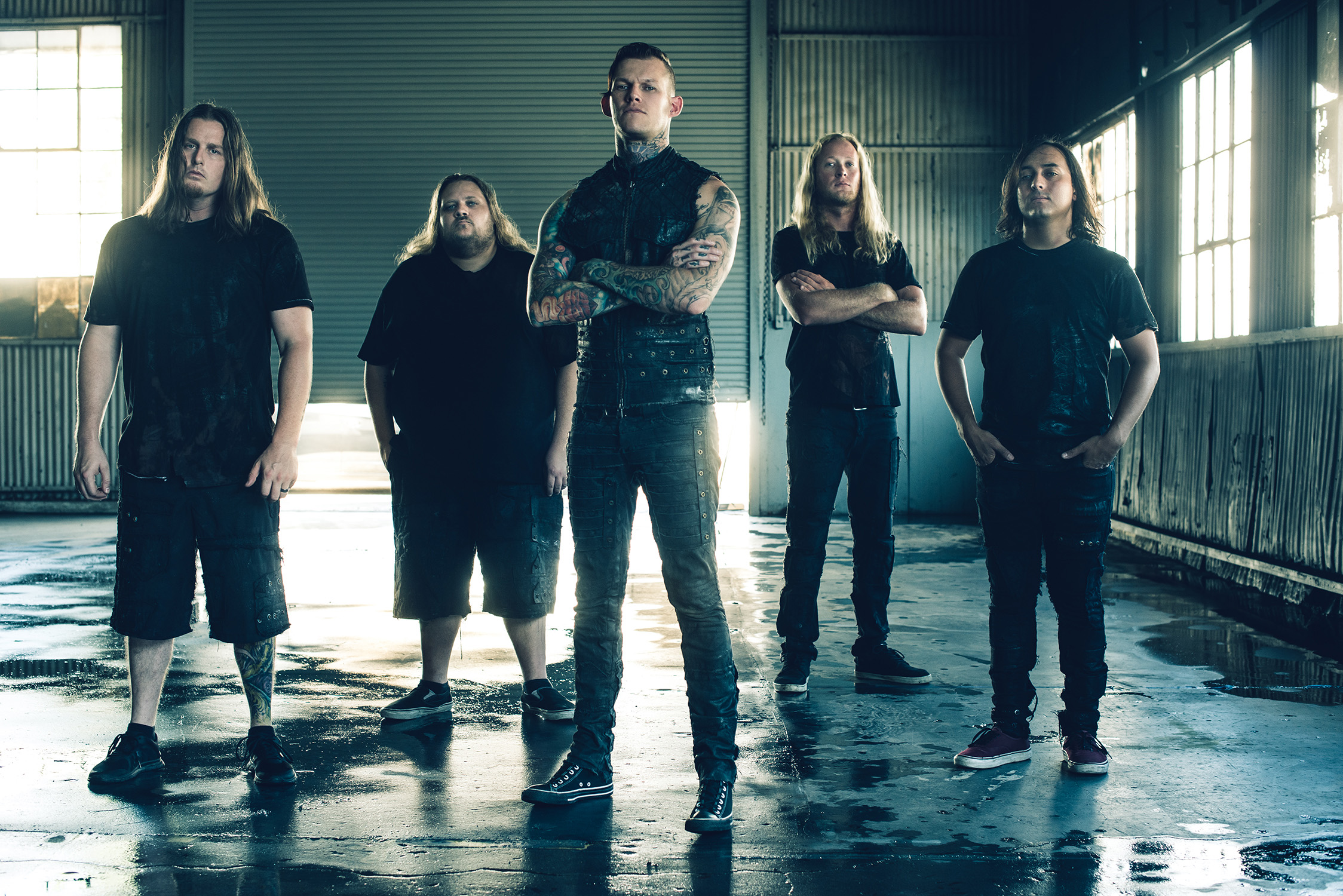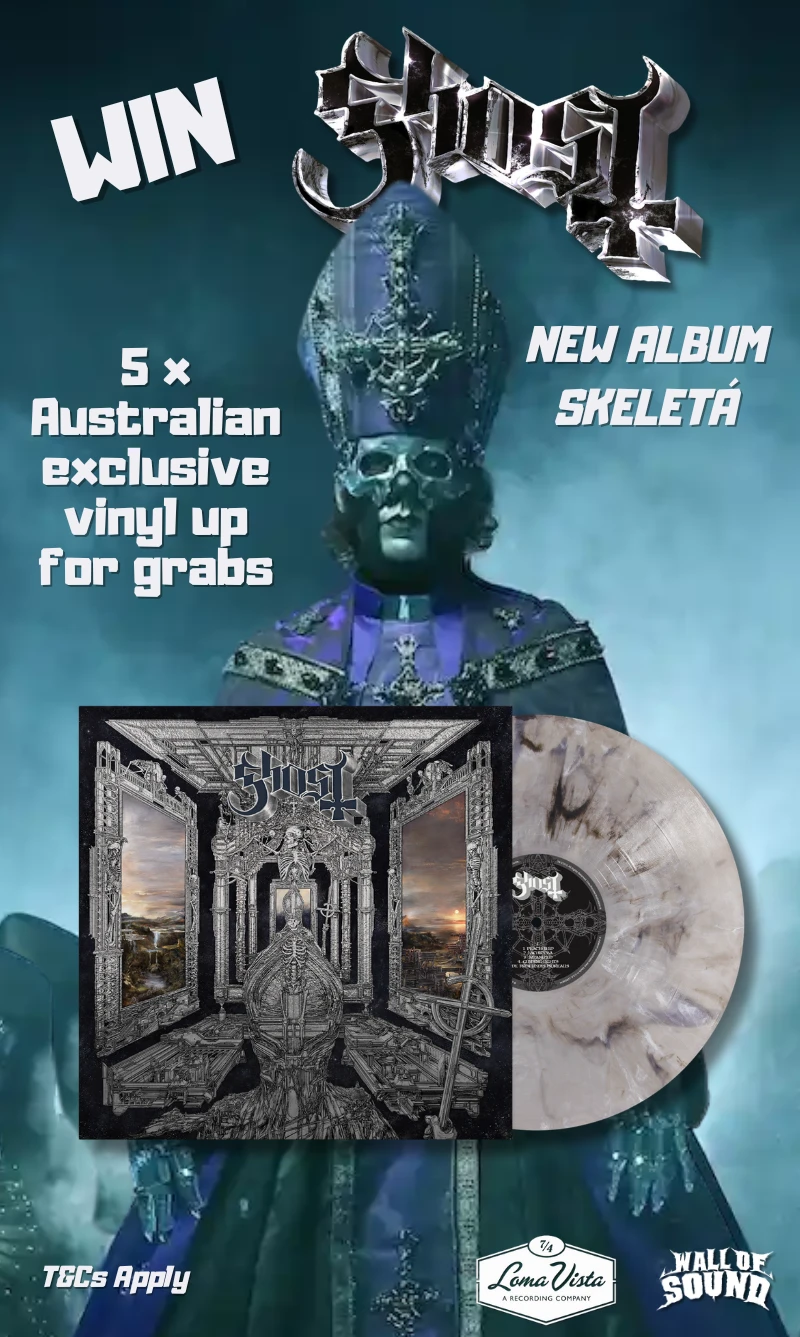Scott Lewis – CARNIFEX Far From A ‘Pale Ghost’

Since forming 11 years ago, the San Diego metal quintet have always forged their own path yet stayed true to the fans. A deadly combination of melodic prowess and aggressive spirit, both as musicians and individuals, renders the band one of the longest standing in a deathcore scene where so many have come and gone.
This resolve spans their entire catalogue, from debut record Dead in My Arms seven years ago to a revitalised band effort in 2014’s Die Without Hope, following a painful but necessary hiatus. It all culminates into their latest gem and sixth album Slow Death, dropping in under two months’ time.
I sat down with lead vocalist Scott Lewis to chat working with powerhouse producers Mick Kenney [Anaal Nathrakh] and Jason Suecof [Trivium, Whitechapel], the concept behind Slow Death, and never having his voice heard growing up… until Carnifex.
First off, how’re you guys feeling about your new record being released really soon?
“We’re feeling great about it. We worked on it for about two years and it’s been a while since we’ve put out a new record. It’s a big one for us, I think we wrote the best album that we ever have. We tried a lot of different things and sounds... It’s definitely not like any of the other records.”
One thing you chose to focus on was developing elements of black metal from Die Without Hope. Where did the inspiration for that originate?
“That inspiration has always been there. On this album, we were really in a place where we could just articulate those influences better. Previously here and there we would do more of the black metal stuff. But particularly with the amount of time that we took [with the album] and our vision to have that darker sound… We were just careful to express that and make sure that influence was really moved to the front of the line.”
There was this great trifecta in the production process with you guys, Mick Kenney and the amazing Jason Suecof. How did that dynamic end up playing out?
“We did all the writing arrangement and pre-production with Mick, so that was about a year and a half process in Southern California where we live. So it was us and Mick just going back and forth until we had exactly what we wanted.”
“Then once that was completed, the band went to Jason out in Florida, and that’s where we tracked what would actually be the record that you hear. So we used our demos as our roadmap and made a few changes here and there, but for the most part, everything that we had written with Mick was essentially what we took into the studio. Jason was really crucial to getting the tones, drum sounds and vocal performances that we wanted.”
“For us with the touring schedule that we have, we wanted to make sure that we could write. So we would write in between tours and then record our demos, listen to them while we were on tour… That’s when we would get the chance to step back from the writing process and just be a listener. There’s ten songs on the album, but we probably rewrote each one six or seven times.”
Let’s talk about ‘Slow Death’, both as the title track and the concept threading through the album. What were you trying to express lyrically and musically?
“I always write from personal experience and from the heart, and my biggest goal is to write something that the listener can connect to.”
“A lot of the album deals with isolation. It’s not necessarily a physical slow death but the idea that having to deal with insecurities, whatever they may be for each individual, is the slow death within itself. It grinds on you and takes away a piece of you each time you have to live through these experiences. So each song touches on those different experiences, trying to move through them and really just letting the listener know that they’re not alone.”
Now what’s really interesting about Carnifex is that you guys have always been outsiders, but your own tenacity has kept you kicking around. Where does that tenacity stem from?
“I think just from trying to prove everybody wrong. We always have been outsiders and the beginning of our careers was really difficult because a lot of people had no interest in working with us. We just got pushed to the side as a deathcore band and weren’t immediately as popular as some of the other ones. We weren’t the cool kids, we were the nerds, and that was us for a long time.”
“If you look at all the bands that have come and gone, the fact that we’re still here is all the evidence to me that they were wrong from the beginning.”
Dead wrong. So taking things in the other direction, what have been some of the moments outside music where uncertainty has bled into your life and nearly overcome you?
“I would say every minute of the day. I think the only area that I really have any certainty or confidence is with the band. It’s sort of been my validation. Growing up, I didn’t really have any friends or was never someone that was popular. I was the didn’t-even-know-existed kid. So when the band came to be what it was, that was my first experience with anyone caring about what I had to say, or that I even had anything to say at all.”
“It’s still challenging sometimes. But it’s really the band where I thrive, and living in that creativity is what has given me purpose and confidence.”
Revitalise your own aggressive energy by pre-ordering Slow Death here, out on August 8 via Nuclear Blast Records.
Interview By Genevieve Gao








